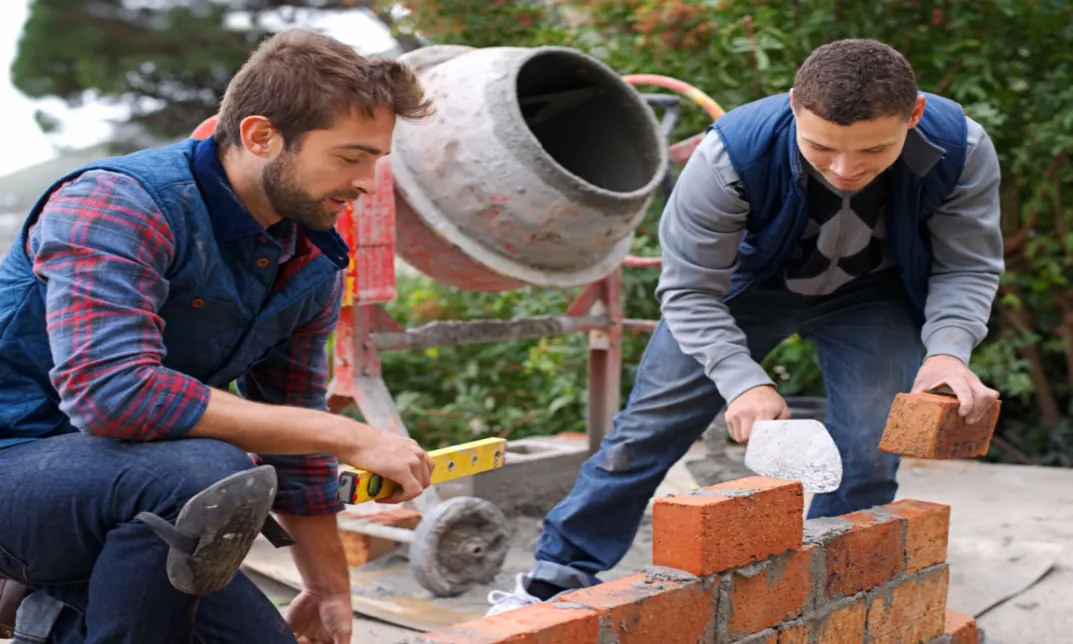No products in the cart.
Bricklaying has always been one of those trades that people trust and respect. From new-build houses to garden walls and extensions, there’s always work around. But the question many people ask is: how much money do bricklayers make per brick UK? On average, a bricklayer can earn between £650 and £1,790 per 1,000 bricks, depending on the type of brick and the job itself. That’s just one way bricklayers charge. Many also work on day rates, hourly pay, or full-job quotes. In this guide, we’ll walk through every earning option, with fresh 2025 figures, real-world examples, and a few tips to help boost income.
Bricklayer Salary UK 2025: At a Glance
Let’s start with a quick snapshot so you can see the earning ladder:
- Apprentice bricklayer: around £11,000 a year
- Newly qualified bricklayer: about £32,000 a year
- Experienced employed bricklayer: close to £40,000 a year
- Self-employed sole trader: roughly £56,000 a year
- Limited company owner: up to £60,000 a year
Those numbers are before expenses like vans, insurance, or tools. Still, they show why so many people choose bricklaying as a long-term career.
How Do Bricklayers Usually Charge?

Bricklayers have a few ways to set prices, and each suits different jobs. Some will charge per 1,000 bricks laid. Others stick with a day rate, while many prefer to give clients a full-job quote.
Per-brick pricing works best for simple walls where the workload is easy to measure. Day rates fit larger projects where the total brick count varies. Full-job quotes appeal to clients who want one clear price with no surprises.
How Much Money Do Bricklayers Make Per Brick UK?
Here’s the detail most people look for.
- Common machine-made bricks: £650 to £1,500 per 1,000
- Engineering bricks: £650 to £1,790 per 1,000
- Clay facing bricks: £2,260 to £5,000 per 1,000
On a good day, a competent bricklayer can set around 500 bricks. That means per-brick pricing can really pay off if the site is clear and the weather behaves. Rain, awkward access, or fiddly patterns slow everything down. So while per-brick deals sound tempting, they only work well under the right conditions.
Bricklayer Day Rates and Hourly Pay
Many bricklayers prefer the predictability of day rates. Here’s what that looks like:
- Apprentice: £50–£60 a day
- Newly qualified: £145 a day
- Experienced employed: £154 a day
- Sole trader: £304 a day
- Limited company owner: £320 or more a day
Hourly pay lines up with these figures. Apprentices often start at £6–£7 per hour. Newly qualified workers charge around £18, while experienced employees get £19. Self-employed bricklayers can charge £38–£40 an hour.
Bricklayer Annual Salary by Career Stage
When you add it all up across a year, here’s what earnings look like:
- Apprentice: £11,000
- Newly qualified: £32,000
- Experienced employed: £40,000
- Sole trader: £56,000
- Business owner (Ltd): £60,000
These figures assume steady work. In reality, winter weather or gaps in contracts can bring annual totals down. On the flip side, long summer days often push them up.
Regional Pay Differences Across the UK
Location matters a lot. Here’s a quick comparison:
- London and the South East: £37,000+ for newly qualified; £50,000+ for sole traders
- Birmingham: £33,000+ for newly qualified
- Manchester: £30,000+ for newly qualified
- Scotland and Wales: often lower, but city jobs can still pay well
London rates stand out, but so do London costs. Fuel, rent, and materials all cost more in the South East. That’s why the higher income there often balances out with higher outgoings.
Self-Employed Bricklayer Earnings: Gross vs Take-Home
Going self-employed usually brings bigger headline numbers, but the reality is a bit different after expenses.
Take a sole trader earning £56,000. Once you remove about £7,000 for vans, tools, and insurance, the take-home sits closer to £37,500. A Ltd company owner may bring in £60,000, but business costs of £10,000 cut that to around £39,000.
Biggest expenses include:
- Vans, fuel, and road tax
- Insurance for tools and liability
- Ongoing training and certificates
- Marketing costs like websites or local ads
- Materials and equipment upgrades
That’s why pricing jobs properly is so important.
Bricklayer Specialisms That Increase Earnings
Want to go beyond average rates? A niche makes the difference.
- Heritage restoration: Restoring historic buildings requires specialist skills, and clients pay for them.
- Eco-friendly construction: Green building methods attract homeowners and companies aiming for sustainability.
- Decorative masonry: Arches, patterns, and bespoke designs often bring premium rates.
- Complex brickwork: Skills like herringbone bonds stand out and command more money.
Specialisation not only raises earnings but also sets you apart in a crowded market.
Bricklayer Demand and Seasonality
Demand stays high across the UK, but the calendar still plays a role. Spring and summer bring full diaries. Longer days and better weather make everything easier. Winter, on the other hand, slows projects down. Rain, frost, and shorter daylight hours affect productivity.
Emergency call-outs can make up for quiet months. Fixing storm damage or collapsed walls earns higher fees. Many bricklayers keep this option open for extra income during off-peak times.
Training and Career Progression for Bricklayers
Starting a career usually means taking a training route. Options include:
- Level 1 Certificate in Construction Skills
- T-Levels in On-Site Construction
- Level 2 Diploma in Bricklaying
- Level 2 and 3 Trowel Occupations
Training gives you the foundation. On-site work builds real skill. Over time, bricklayers can move into foreman roles or even start their own business. That’s when incomes really climb.
Tax and Compliance: What Bricklayers Need to Know
This is the area many blogs skip, but it’s crucial.
- CIS (Construction Industry Scheme): Many contractors deduct 20% from your pay at source. You claim it back when you file your return.
- National Insurance: Self-employed bricklayers pay both Class 2 and Class 4 contributions.
- VAT: You’ll need to register once turnover passes £90,000.
- IR35: Some Ltd setups fall under this rule, changing how you pay tax.
Sorting tax early keeps you out of trouble. Most bricklayers benefit from hiring an accountant, even part-time.
How Bricklayers Can Boost Their Earnings
If you want to push income up, here are some smart moves:
- Raise rates as your skill grows. Don’t stay on starter prices forever.
- Offer emergency call-outs. Clients pay more when a job can’t wait.
- Add related services like blockwork or patios.
- Invest in marketing. A website and local ads keep your diary full.
- Network with builders. Relationships bring steady referrals.
- Keep training. New techniques and eco-options make you stand out.
Bricklaying rewards hard work, but strategy boosts earnings even more.
Bricklayer Pay vs Other Trades
Here’s how bricklaying stacks up against other trades:
- Electricians (newly qualified): £40,000+ in London
- Plumbers: £40,000+
- Gardeners: £30,000+
- Bricklayers: £37,000+
Bricklaying sits in the middle. It beats several trades and brings the added freedom of self-employment.
FAQs on Bricklayer Earnings
How much do UK bricklayers earn per brick?
Most UK bricklayers earn 65p–£1.50 per brick, depending on location and project type.
Can you get paid 1 per brick?
Yes. Some jobs pay £1 per brick, especially private or specialist work.
How long does it take to lay 500 bricks?
An experienced bricklayer can lay 500 bricks in about one day.
Can a bricklayer lay 1000 bricks a day?
Yes, but only on simple projects. 400–600 bricks a day is the usual average.
Summary
Bricklaying offers a solid career with strong earning potential. Apprentices start around £11,000 and company owners can hit £60,000. Day rates and per-brick work add flexibility, while specialisms like heritage restoration or eco-friendly construction push rates even higher. Self-employment comes with costs, but the rewards can be worth it. With demand strong across the UK, 2025 looks like a promising year to enter or grow in this trade.
Ready to increase your skills and earning power? Enrol in our online Bricklaying courses at Open Learning Academy today. Gain industry-recognised certificates, learn advanced techniques, and put yourself in the best position to charge more and grow your career.




